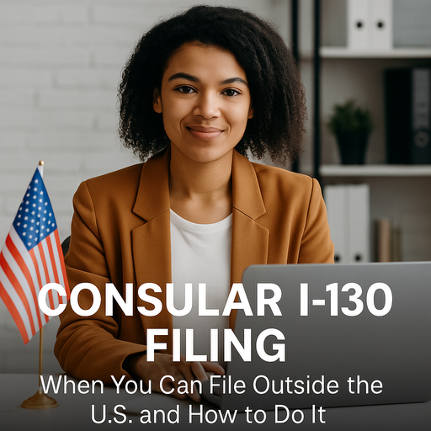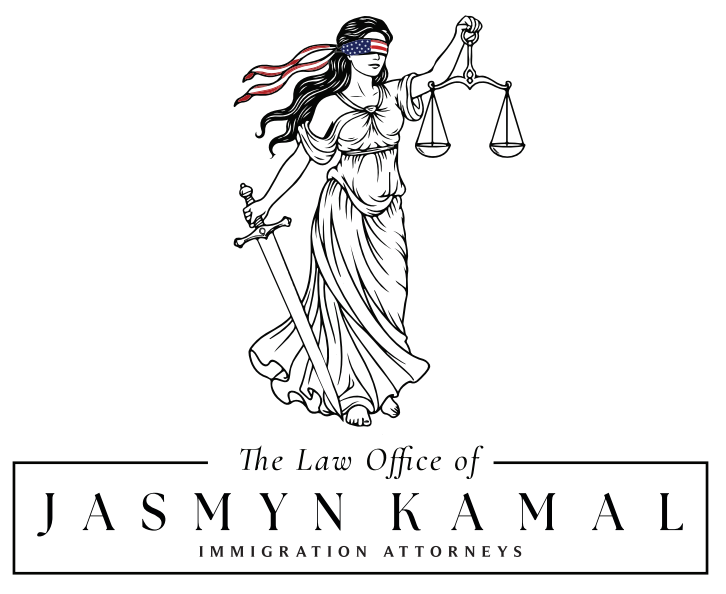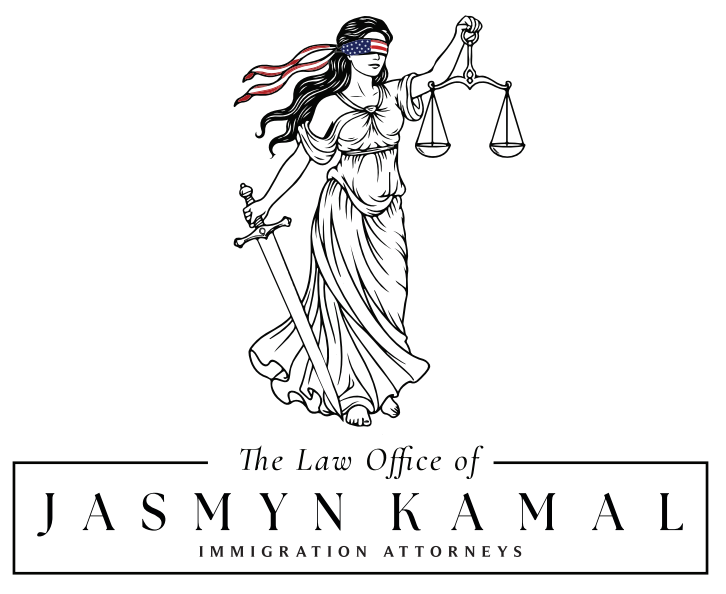Consular I-130 Filing: When You Can File Outside the U.S. and How to Do It

What Is a Consular I-130 Filing—and When Is It Allowed?
In most cases, U.S. citizens seeking to bring their spouse, parent, or child to the United States must file Form I-130 (Petition for Alien Relative) with USCIS inside the U.S. But what if the U.S. citizen and the beneficiary are both outside the U.S. and face an emergency?
In rare, urgent situations, the U.S. Department of State (DOS)—through its consulates and embassies abroad—can accept and adjudicate I-130 petitions locally. This is known as “consular filing.”
But here’s the catch: this process is only available in exceptional or emergency circumstances, and it’s up to the consulate to accept or reject the case.
When Can You File an I-130 at a U.S. Consulate?
The U.S. Citizenship and Immigration Services (USCIS) allows DOS to accept a local I-130 filing if:
- The petitioner is a U.S. citizen, and
- The situation meets exceptional circumstances, or
- The case falls under a temporary or blanket authorization by USCIS.
The consular officer has discretion to accept or deny the request. You cannot appeal their refusal.
Examples of Exceptional Circumstances
According to USCIS guidance, some qualifying emergencies include:
- Military Emergency
- Medical Emergency
- Threats to Safety
- Child Aging Out
- Recent Naturalization
- Adoption
- Short-Notice Job Relocation
Temporary Blanket Authorizations
USCIS occasionally grants blanket authorization for consular I-130 filings during major crises, such as:
- Wars or natural disasters
- Deployment of U.S. military personnel stationed on overseas military bases
Important Limitations
You cannot use consular I-130 filing just to speed up processing. Specifically:
- You can’t travel abroad just to file locally.
- If you already filed an I-130 with USCIS, you can’t file a second one abroad—unless you withdraw the first (and even that may not work).
What About Location and Presence Requirements?
- The petitioner and beneficiary must both be physically present in the consular district.
- The petitioner must appear in person at the consulate for the filing.
- The beneficiary must be able to remain legally in the host country throughout visa processing.
While the petitioner doesn’t have to live in that country long-term, local residency may help strengthen the request.
Not All Embassies Handle Filings the Same Way
Each U.S. consulate has its own intake procedure. Examples:
- Australia: Requires an email request with the signed petition and evidence, followed by an in-person appointment.
- United Kingdom: Uses an online contact form first; then requests documents and may schedule an appointment.
Some posts are flexible—others are very strict. It helps to submit a detailed personal declaration explaining the urgency and potential consequences.
How Are Consular I-130 Petitions Adjudicated?
If the petition is clearly approvable, the consular officer may approve it on the spot.
If not, they forward it to the appropriate USCIS service center.
Once approved, the case skips the National Visa Center (NVC) and goes straight to consular processing, where the beneficiary files a DS-260 and prepares supporting documents.
Key Takeaways
- Consular I-130 filing is for rare, urgent, and time-sensitive cases.
- Each U.S. embassy or consulate has different procedures.
- You cannot appeal a consulate’s decision not to accept your case.
- If denied, you may still file a traditional I-130 with USCIS and request expedited processing.
Need Help with a Consular I-130 Filing?
At The Law Office of Jasmyn Kamal, we help families navigate urgent immigration matters with speed and care. If you’re abroad and facing an emergency, or wondering if you qualify for consular I-130 filing, contact us today.




